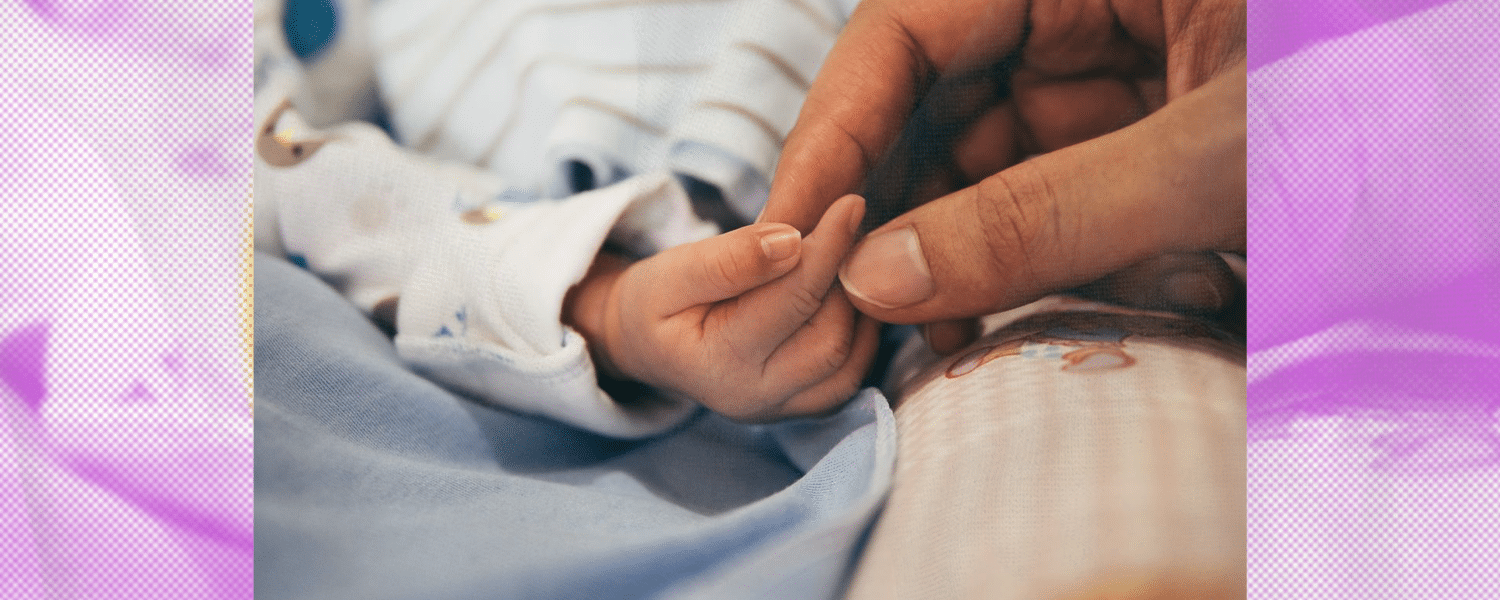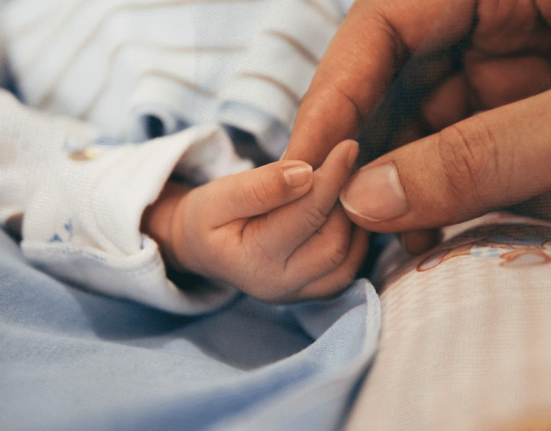KC Manongsong, Desiree Obrado, and Lei Chun considered themselves as part of the growing population of Filipinos who are choosing to not build their own family yet.
Commission on Population and Development executive director Lisa Grace Bersales told Cignal TV’s One News in May that they have seen an increase in the number of Filipinos who are delaying marriage and having children for at least three years.
Their reason? Bersales said it was because they want to prioritize their careers.
There are many other factors that Filipinos considered before they decided to delay parenthood. For Manongsong, Obrado, and Chun, such a decision concerns both their personal situation and economic conditions of the country.
“Hindi pa ko ready. If ever kasi, gusto ko I am emotionally and financially stable kasi mahirap yung papasok ka sa isang bagay tapos hindi mo siya mapapanindigan in the end,” Manongsong told republicasia.
She stressed that being a mother is a lifetime commitment and it is not something that women would do just because they “like” it. Motherhood comes with a huge responsibility, including their role in shaping their children’s future.
Chun echoed this and said she does not want to put herself through pregnancy strain, especially when she is not prepared to deal with the physical and mental stress that parenthood can bring.
Obrado, meanwhile, said that she just started enjoying her life, after spending most of her time providing for her family as the eldest daughter.
“Now that my brothers are starting their careers, I am able to do the things [that] I want little by little. I get to enjoy traveling and [buying] things for myself and raising a kid is not a priority right now,” she said.
Their financial state also became a factor, particularly in today’s age where the prices of goods and services are skyrocketing. Considering their financial capability, the three young women said it would not be easy for them to shoulder the big responsibility of being a mother.
“In this economy, the idea of having a child almost seems impossible. I’m currently living alone in Metro Manila and my current income is only enough for myself,” Chun said.
Manongsong and Obrado also stressed that they are not yet confident that they could give a comfortable life to their children in case they decide to have one now.
While having a kid is not yet on their priority list, it doesn’t mean that they are closing doors for motherhood.
Women actually have an option to attempt pregnancy at a later date or once they are ready for motherhood.
The process is called egg freezing. But what exactly is this procedure and how can it be beneficial for women?
What is egg freezing?
Social egg freezing, also known as elective egg freezing, is a procedure when a woman’s eggs are harvested and frozen for future use, according to fertility medicine specialist Dr. Cialuj Teza Agbayani-Cruz.
The process has been around for decades, which was initially used for medical purposes such as preserving fertility before receiving chemotherapy or other cancer treatments.
Egg freezing was then used prominently in the 21st century for non-medical reasons by women who opted to prioritize their careers or those who could not find a suitable partner, Cruz noted.
“The hype of the social egg freezing started around 2010, when big companies like Facebook and Apple started offering it to their employees as part of their employee benefits,” Cruz told republicasia.
How is it done?
Egg freezing usually takes about two to four weeks to complete a single cycle, but this may change depending on a patient’s response to medication, her menstrual cycle, and her general health.
Before a woman undergoes the procedure, there is a series of processes that has to be completed first, according to Cruz.
The process will start with an initial consultation with a fertility expert to assess the general health of the patient and to see if egg freezing is suitable for her condition.
This will be followed by ovarian stimulation, where hormonal injections are administered to the patient subcutaneously for eight to 14 days. However, this period may vary depending on the patient’s response.
“The purpose of these medications [is that] we would like to stimulate the ovaries to produce multiple eggs,” Cruz explained.
She added, “In a natural cycle kasi, our bodies are designed to only produce a single egg every cycle.”
During ovarian stimulation, a fertility specialist will also conduct a series of monitoring with ultrasound. The patient, on the other hand, will be asked to return every two to three days. It is also possible that the specialist will conduct blood tests and check the patient’s hormone levels and the development of her egg follicles.
Once the eggs reach the desired size, trigger shots will be administered to initiate the final oocyte maturation. After 36 hours, the egg retrieval will be done.
“Eggs are already collected, let’s say [a] short outpatient procedure is usually an hour or less. It’s ultrasound-guided aspiration. It’s under anesthesia, usually just IV, they make you sleep so you won’t feel pain, you won’t remember anything,” Cruz noted.
Meanwhile, the retrieved eggs will be checked for their quality and maturity, she added.
These will immediately be frozen using a fast-freezing technique called vitrification.
“After vitrification, the eggs are then stored in liquid nitrogen, and that’s it, until the woman decides when she will use it for IVF (in vitro fertilization),” she said.
IVF is a method where the egg is fertilized with sperm outside the body and then implanted into a uterus.
But is there a required number of eggs that must be collected? Cruz said the goal is to harvest at least nine to 15 eggs, but this will depend on the patient’s response to the ovarian stimulation, her age, and her health condition.
How does it benefit women?
Egg freezing offers a number of benefits to women, particularly to those who are not yet ready to take the sacred role of a mom.
One of the major benefits of this procedure is that it gives them the opportunity to preserve their fertility and use it until later.
It is important to note that the quality of eggs declines with age. Cruz said the egg quality starts to decline at the age of 32, and it will rapidly decline after the age of 35. So the more the woman delays her pregnancy at a later time, the lower her chance to conceive.
“Freezing your eggs at a younger age can offer you better chances of future successful pregnancies because you keep the quality of your eggs intact,” Cruz emphasized.
Another benefit is that egg freezing can give women career flexibility. With this process, Cruz said women can focus on their careers without worrying much about societal pressures.
“I always tell this to my patients, ‘IVF is expensive, egg freezing is expensive, but it is expensive because it allows you to buy something that you cannot, which is time,’” she stressed.
“If you’re not yet ready for parenthood [or if] you found a partner but you guys aren’t ready for parenthood, it gives you more time to prepare for it. If you haven’t found the one, it allows you more time to go [on] dates and explore,” she continued.
Cruz said that egg freezing can give women “a greater control” over their reproductive choices such as the number of kids they would want to have. It may also serve as their “backup plan” in case something happens to them in the future.
“It kind of give you an insurance just in case something happens to you in the future, just in case bigla kang magkasakit ng something severe,” the specialist said.
“If you still want to have children, if you have frozen eggs, it acts like a backup plan for unexpected issues later in life,” she added.
How successful would it be?
While egg freezing can be an option to build a family at a later age, Cruz said the procedure still cannot promise a 100 percent chance of pregnancy.
“An embryo is made up of an egg and a sperm. So, no matter how good the quality of the egg is, but then yung partner mo, yung sperm niya hindi maganda, it does not equate na, ‘Okay, 100% na I’ll get pregnant because I froze my eggs,’” Cruz explained.
She also said that women have to consider what age they underwent egg freezing. If they had their eggs frozen at a later age, then the quality of those might already be low.
“It is ideal to have eggs frozen when you’re [in] your early 30s,” Cruz said.
There is also a possibility that some eggs will deteriorate during the vitrification and thawing process or the unfreezing of eggs.
Deterioration of eggs may depend on their quality, the skill of an embryologist, and the laboratory setup of a clinic, Cruz said.
“Pwedeng may dalawang mag-deteriorate during the process. Pero the better the egg quality, the more stable yung egg during the vitrification and the thawing process,” she added.
Other consequences, risks
Cruz also mentioned some risks that the patient may have to deal with during egg freezing, especially those with health conditions like Polycystic Ovary Syndrome (PCOS).
“If you have [PCOS], the hormonal stimulation can lead to ovarian hyperstimulation syndrome. But [with the] advances in the technology and the stimulation protocols, manageable naman [ang] OHSS,” the specialist said.
Another consequence is the emotional toll the procedure can have on the patient, as it can also bring out a lot of emotions from her.
How much does it cost?
The price of egg freezing may vary, depending on the clinic and the complexity of the patient’s case, according to Cruz.
But Cruz said that the price usually ranges from P160,000 to P400,000 per cycle, inclusive of medications, consultations, monitoring, and the egg retrieval procedure itself.
Patients will also have to pay storage fees of their eggs that amount to P15,000 to P18,000 per year.
Being a mother is a choice
Despite the modern age, it cannot be denied that women still face several societal pressures. People should know that parenthood is not something they can force upon women.
Being a parent is a choice that women should consider carefully, said Obrado.
“Motherhood is a big responsibility, most women can give life to a child but not all can be a mother,” she said.
She went on, “It’s really a woman’s choice. It’s her body and it’s her life. Of course, you still need to discuss it with your partner out of respect for them, but the decision is still up to you.”
Women’s decision to delay pregnancy must also be respected by others, Manongsong said.
“We are all different and also may kanya-kanya tayong choice like dapat hindi sila pinepressure na, ‘Ang tanda mo na bakit di kapa mag anak?’” she underscored.
For all the women out there, it is okay to do things at your own pace.
As Chun told republicasia, “In the end, their bodies, their choices.”









